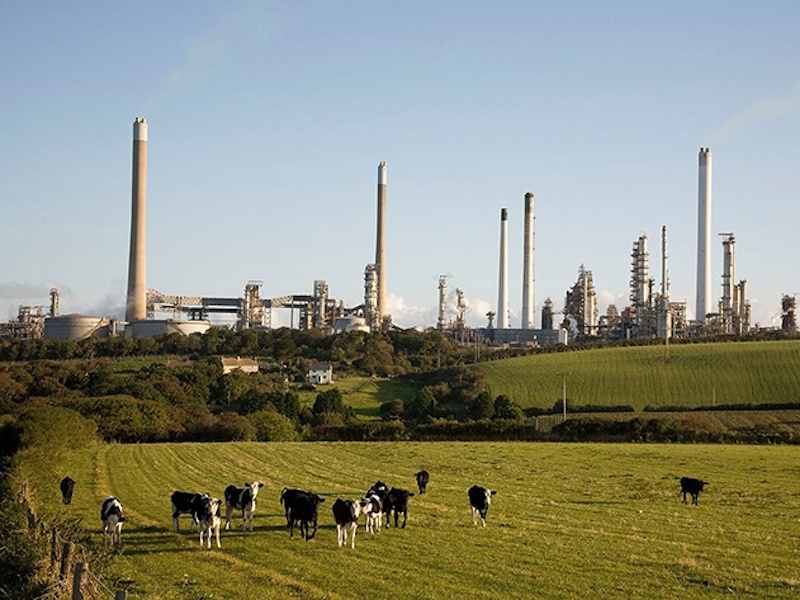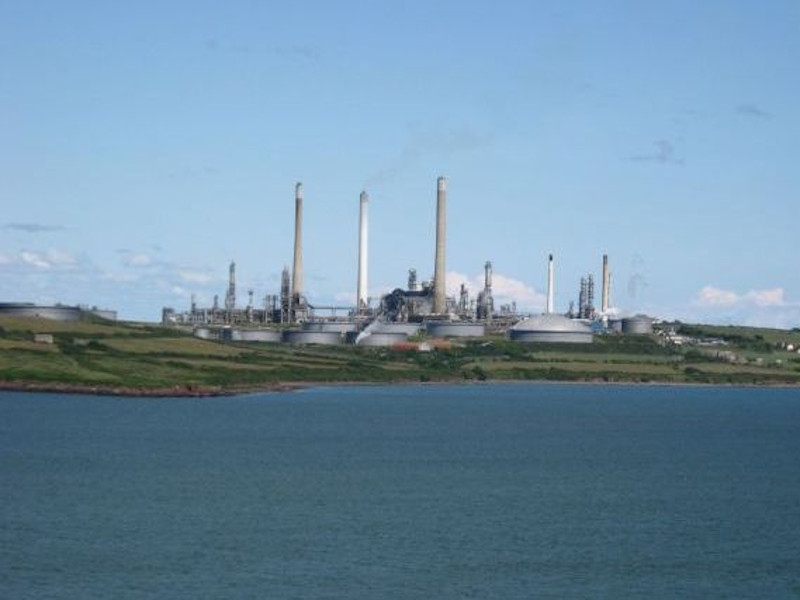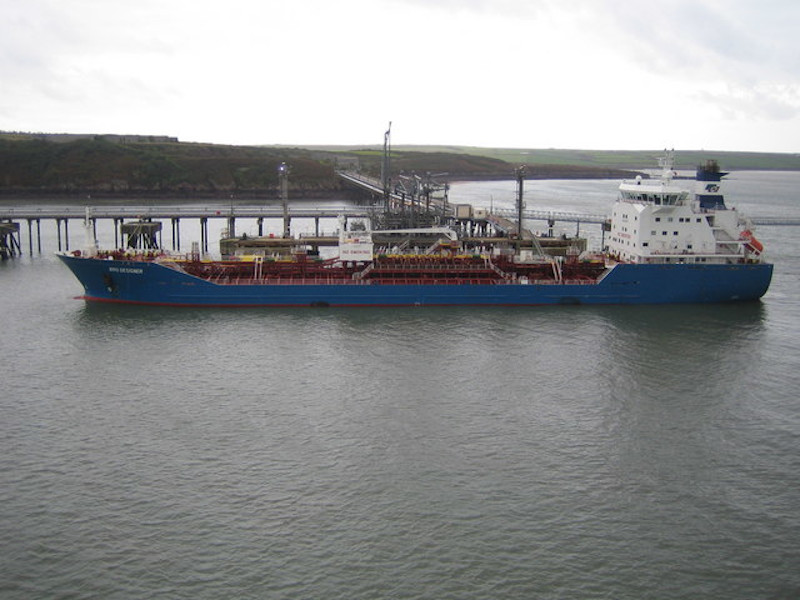The Pembroke refinery, also known as the Texaco oil refinery, has been operational in Pembrokeshire, Wales, UK since 1964. The refinery facility is capable of processing 220,000 barrels per day (bpd) of crude and 50,000bpd other feedstocks.
The refinery is currently owned and operated by Valero Energy, an independent petroleum refiner based in Texas, US.
Valero entered the European market by acquiring the Pembroke refinery as well as 1,000 retail outlets from US-based Chevron in a £1bn ($1.7bn) cash deal in August 2011, with the Pembroke refinery asset valued at £447m ($730m).
The company has further invested £127m ($166m) to build a combined heat and power (CHP) cogeneration plant at the Pembroke refinery site which is scheduled to come online in 2020.
Project Gallery
Pembroke is one of the UK’s three refineries that are owned and operated by a US-based company. The remaining two are the country’s biggest Fawley refinery of ExxonMobil in Hampshire and the 221,000bpd Humber refinery in North Lincolnshire which is owned and operated by Phillips 66 (formerly ConocoPhillips).
Concerns over no-deal Brexit
Valero has been proactively engaged through the UK Petroleum Industry Association to voice its concern to the UK Government against 0% import tariffs on petrol in the event of no-deal Brexit.
The country’s refiners have unanimously issued warning that the absence of tariffs on gasoline imports to the UK and the possible imposition of tariffs on UK gasoline exports to the EU will create a competitive disadvantage for all UK refineries.
The six oil refineries of the UK produce a total of approximately 400,000 barrels a day of gasoline a day, of which approximately 30% is exported to other European countries.
Pembroke refinery location and site details
The refinery sits on 450 acres of a 1,275-acre site on the south bank of the Milford Haven Waterway at Rhoscrowther, Pembrokeshire, South West Wales, UK. The refinery site features deep-water port and docks capable of handling very large ships.
Pembroke refinery history
Construction for the Pembroke refinery was started in 1963. It was originally developed with £30m investment as a hydro skimming refinery capable of processing 100,000 barrels of crude a day.
Ever since it came on stream in 1964, the Pembroke refinery has witnessed a number of upgrades and expansions to boost processing capacity as well as its ability to process difficult crudes including acidic, heavy crude.
Crude throughput capacity was increased to 140,000bpd in 1971 and to 190,000bpd in 1973. A 65,000bpd fluidised catalytic cracking unit (FCCU) was installed at the site in1982 followed by the commissioning of a visbreaker processing unit in 1984 and that of a continuous catalytic reforming (CCR) unit in 1885.
The FCCU was refurbished to 90,000bpd capacity in 1989, while a second hydrotreater unit for low-sulphur diesel production as well as a light naptha isomerisation unit was added in 1991.
A vacuum distillation project was implemented to increase vacuum gas oil output in 1998, while an ultra-low sulphur gasoline project was completed in October 2001 followed by the construction of two additional jetty berths in 2002.
The Pembroke refinery was previously owned by Texaco, which was acquired by Chevron in 2001. The present owner Valero acquired the facility from Chevron in 2011.
Pembroke refinery details
The Pembroke refinery has a total throughput capacity of 270,000bpd, including 220,000bpd of crude oil, and 50,000bpd of other feedstocks.
Crude oil from the nearby deepwater port is pumped through pipelines to one of the refinery’s storage tanks. The refinery site has more than 140 storage tanks with a total storage capacity for 10.5 million barrels of storage, approximately half of which is used for feedstocks.
Products from the Welsh refinery
The Pembroke refinery processes different types of crude to produce a range of products including gasoline, diesel, kerosene, liquefied petroleum gas (LPG) and petrochemical feedstocks.
Approximately 44% of the refinery’s products are gasoline, while distillates account for approximately 40%.
The refinery produces approximately 135,000 barrels of petrol and 82,000 barrels of diesel a day, apart from 16 other different products.
Pembroke CHP cogeneration plant
The Pembroke facility currently draws approximately 41MW of electricity from the National Grid.
The under-construction CHP cogeneration plant will be equipped with a 45MVA natural gas-fired combustion turbine generator system to generate electricity as well process steam for the refinery.
Valero Energy approved £127m ($166m) investment for the cogeneration plant in March 2018 and awarded key contracts for the same in October 2018.
Scheduled for commissioning in 2020, the on-site CHP unit is expected to increase the energy efficiency of the refinery.
Explosion at Pembroke refinery
Flammable gases inside an oil storage tank ignited resulting in the explosion of the 730,000litre-capacity tank as well as damages to a vessel positioned next to it in June 2011. The accident took four human lives.
After almost eight years of investigations, B&A contracts, a specialist tank cleaning company engaged at the refinery was fined £120,000 after admitting health and safety lapses, while operator Valero was fined £5m and was ordered to pay £1m in legal costs in June 2019.
Chevron, who was the owner of the refinery at the time of the disaster, agreed to pay the fine as well as the legal costs as part of the refinery acquisition deal it had struck with Valero Energy in 2011.
Contractors involved
Fluor Corporation was awarded the engineering, procurement, and construction (EPC) contract for the CHP cogeneration project at Pemborke in October 2018.
The scope of the contract also includes substations, transformers, electrical and piping tie-ins, as well as a fuel gas pipeline system.
Wood Group was contracted to provide onshore industrial services for the Pembroke refinery in February 2016.
GPS PE Pipe Systems, a subsidiary Aliaxis Group, was sub-contracted by Aker Solutions to replace existing metallic pipes with its Protecta-Line barrier pipe and fittings system, as part of the potable water network renewal project at the Pembroke refinery.
Amec Foster Wheeler (now Wood Group) was awarded an engineering, procurement, and construction management (EPCM) contract by Chevron for a revamp of the 90,000bpd FCC unit at the site in February 2007.



